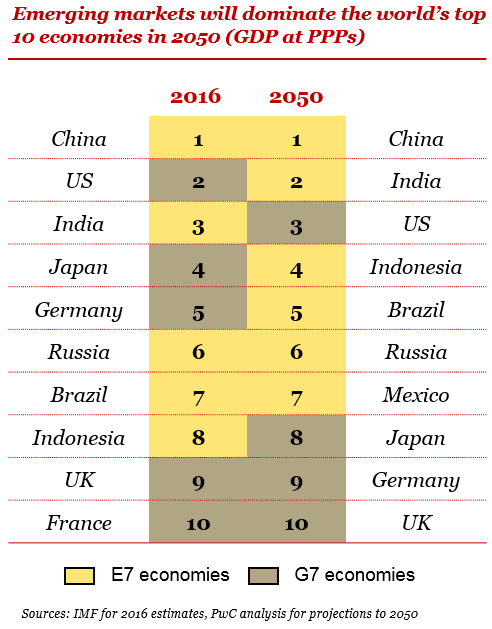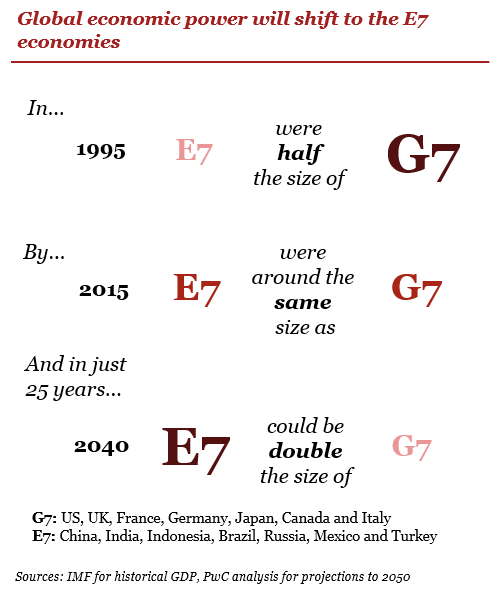Brexit, coronavirus, and trade tiffs may be making economic headwinds, but despite immediate challenges, the world economy is projected to keep growing at a rapid pace over the next few decades.
In fact, by 2050, the global market is projected to double its current size, even as the UN forecasts the world’s population will only grow by a modest 26%, BBC reported.

This growth will bring with it plenty of changes. Though it can be challenging to predict exactly how the future will unfold, most economists agree on one thing: today’s developing markets will be tomorrow’s economic superpowers.
According to The World in 2050 report by international professional services firm PwC, in 30 years, six of the seven of the world’s largest economies will be today’s emerging economies, surpassing the US (dropping from 2nd to 3rd), Japan (dropping from 4th to 8th) and Germany (dropping from 5th to 9th).

Emerging markets (E7) could grow around twice as fast as advanced economies (G7) on average. As a result, six of the seven largest economies in the world are projected to be emerging economies in 2050 led by China (1st), India (2nd) and Indonesia (4th).

Even relatively smaller economies like Vietnam, the Philippines and Nigeria will see huge leaps in their respective rankings over the next three decades, according to the report.
Emerging economies need to enhance their institutions and their infrastructure significantly if they are to realise their long-term growth potential.


















